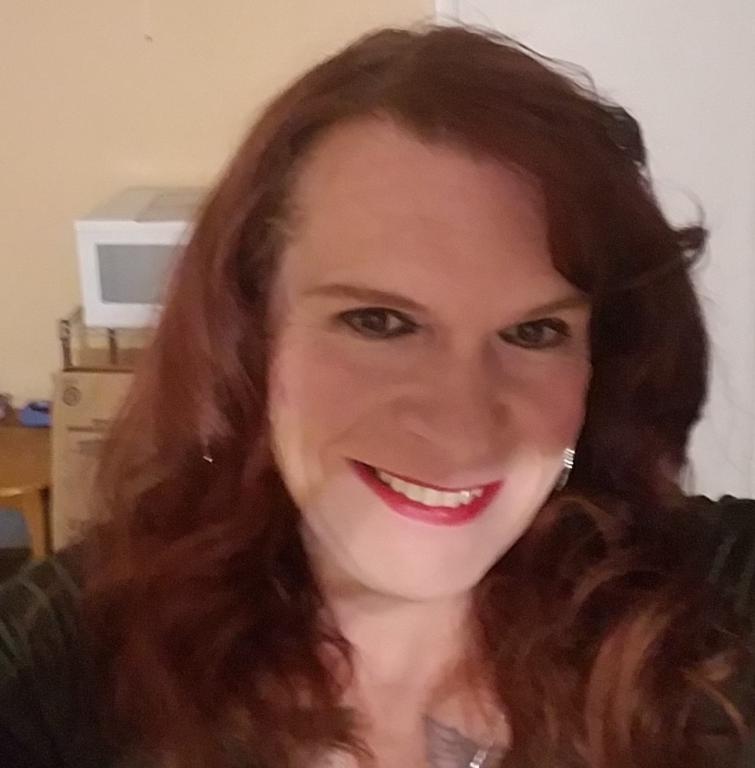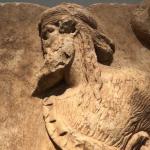“There is a voice that doesn’t use words; listen.” – Rumi
There is power in the words we use. What voice do you think Rumi was referring to in the above quote? Do you think it was the voice of reason? Maybe it was a voice of the heart. How could a voice without words have power? Books don’t speak like humans but they certainly have a voice. They carry the voice of their author. So perhaps this voice without words is the voice of knowledge, or just perhaps, it’s the voice of choice. The power isn’t the words we use but the words we choose to use. Words can become laws and decide fate in a court of justice, however, words also become stories that empower and enchant; therefore, the words we choose might also disempower.
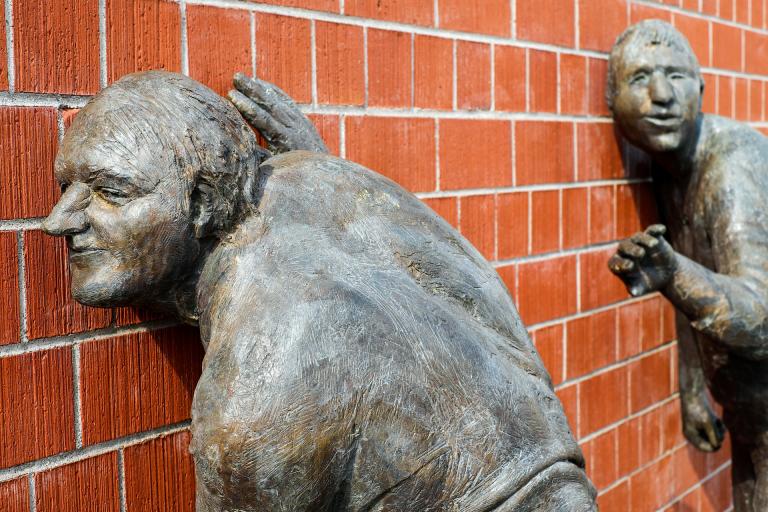
The first time this writer realized the power of words outside of the public school, was reading Isaac Bonewits’ Real Magic. This book was my first encounter with laws pertaining to magic. There are a few laws that assist in understanding the value of the Law of Names. One which I will mention is the Law of Knowledge. It sounds pretty simple doesn’t it? The more you understand about something, the better qualified you are to choose the words which will gain you power over that thing. Then, there is the Law of Cause and Effect which states for every action there is a reaction. For every word you choose there is a reaction which we need to consider. The reactions you experience may well be the result of the choices you make.
The Law of Names suggests that knowing the complete name of an entity or phenomenon grants you power over it, but it is also based on the premise that knowing the full name comes from fully understanding the entity or phenomenon. How often do we choose to refer to things by powerful words without complete and full comprehension? Names can also be very symbolic, therefore the names, or words, which we apply to others can confer certain emotions or images. These words are called “associational devices” because we associate certain thoughts and feelings with them. Imagine for a moment that we changed these associational devices. Do you think we could change the positive or negative reaction to certain images?
The Law of Words of Power suggests that certain words can influence an inner and/or outer reality of the person using the word. Everything about the way a word of power is implemented can increase or decrease the effects. This includes inflections, accents, stressed syllables, tone and rhythm.
Another quote by Rumi, “ Life is a balance of holding on and letting go.”
The Law of Balance tells us we must strive to keep all aspects of our world in balance to avoid conflict and dissolution. When we balance our choices with knowledge and careful decision-making, we give ourselves and our communities the best possible chance at achieving goals and reaching our fullest potential. There are some things, some kinds of choices, which we must decide if they are worth holding on to, or consider the benefits of letting them go. Magic laws don’t have to remain confined to ritual space, and knowledge of them and their cause and effect can be used to improve everyday life and interpersonal relationships.

“Let it go, let it go”
This is more than just the words to a Disney animated film. This is about the power of letting go of judgments and false perceptions that create bias, stereotypes, prejudice and exclusion. This process of letting go isn’t as easy as just saying the words. In “Frozen”, Elsa learns that she can gain full control of her powers by letting go of her past and all the restrictions she was expected to live by. This is a good lesson for anyone living in the shadow of their past, that by letting go they gain more power over how they live in the present. When our choices are no longer dictated by the expectations or past actions of others, we begin to realize how much potential we have. Choices is a word of special power. The phrase “let it go” becomes a phrase of empowerment.
Why can’t others learn this seemingly simple bit of magic? Oftentimes, a community that embraces restrictions on choices is what author Peter Block refers to as a “stuck community.” A stuck community will often broadcast many reasons to fear what they define as people or situations outside the mainstream. They choose words and names of bias to describe individuals whom they don’t understand. This is what I refer to as “words of disempowering.” The evening news focuses on crime and suffering, often with human interest stories only taking up a small fraction of air time. This type of reporting commercializes suffering. It focuses on ratings (causes) rather than on the reactions (effects) of the broadcast. In response, fear is justified, and an agenda based on retribution is promoted. These “words of power” from the media contribute to much of the division we see in the country’s social landscape. Suffering is often contrasted with spiritual values, creating a religious context for order and rules. This amplifies the argument against the value of diversity and inclusion by implying that anyone not the same is not of the same system of rules and order. Ask yourself, when was the last time you saw positive news coverage of someone from the LGBTQIA community appear on the evening news. Go ahead, I’ll wait. Back yet? Rather than focus on a community of possibilities, the result is focusing on a community of problems that need to be solved. Not that we don’t have problems, but when you change the context, you change how people react compassionately.
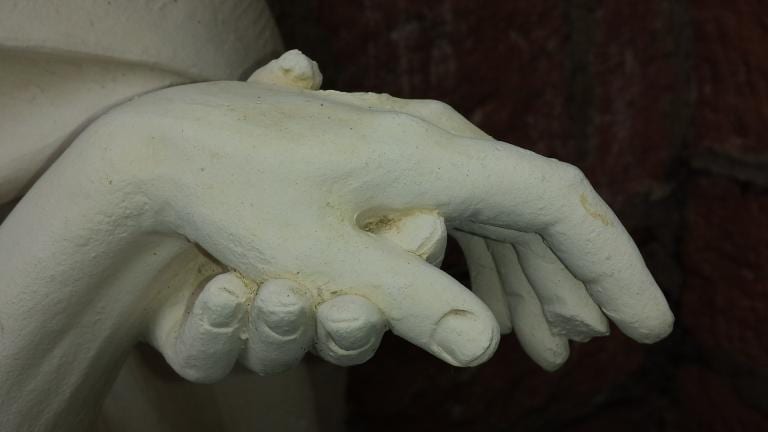
If we think of our culture in retributive terms, we may begin to understand why we have such a need for strong leaders that act quick and fast with a sense of authority. Rules and order breeds a certain amount of dependency in a community by reducing accountability on a personal level. If we are told how to think, act or restrict ourselves, we always know what is right and what is wrong. We never have to question anything, nor do we consider possibilities. Our vision is narrowed by the choices we make or by allowing others to make choices for us. The focus is no longer on the individual but the retributive agenda that becomes a never-ending cycle. Being in the “right” outweighs the potential value of being compassionate. This shouldn’t be conflated with the comparison of optimism to idealism. Idealistic is not always realistic. Optimism and possibility is about setting goals you can believe in and working for them.
Making the Descent
Another approach: In the descent of Inanna, she ventures to the Underworld to attend a funeral for Ereshkigal’s husband, Gugalanna. As she descends, she must pass through seven gates. At each gate, a piece of her regalia is stripped away, which eventually leaves her void of all identity and personal power. When she reaches the bottom of the descent, she is judged, albeit rather unfairly, and killed. For three days, she hangs on a hook as rotting flesh. Eventually, her trusted friend Ninshubur sends two beings to console Ereshkigal and encourage the release of Inanna. Inanna returns through the seven gates, regaining her regalia along the way and once back on top, begins a search for a scapegoat to take her place on the meat hook in the Underworld.
This myth has been used many times over and again as symbolic of initiation and the quest for renewal and knowledge. Inanna had to learn to let go of those things that defined her in order to regain her power and the knowledge necessary for her to be a powerful goddess. As a symbol of the vegetative process, the crops rise from the ground, bear fruit, and return to the rotting nothingness in the soil, only to arise again. Imagine a community that willingly descends. False perceptions are removed. Idealism is removed. The “words” are silenced and identity is suspended. Then, like Inanna, the community returns through the gates, transforming the way it identifies itself, using new words and language to shape its vision, and seeing everyone with new clarity and possibility.
As pagans, many of us are very familiar with rites of initiation, and for those who aren’t, anyone who has undergone rituals of growing up and leaving home, graduating college, getting married, all of which can be viewed as initiatory passages. The descent purifies the old self, the return initiates the transformation. This is just one way to ritualize the process of changing the choices we make and renewing our clarity of the choices available to us.
When we change our words, we change our power. We also affect others’ power. When we change the “names” by which we know others, we can effectively influence them, by perceiving them in a different light. This puts the idea of the Law of Names to work for us. Letting go of outmoded associational devices changes the way we empower or disempower our community.
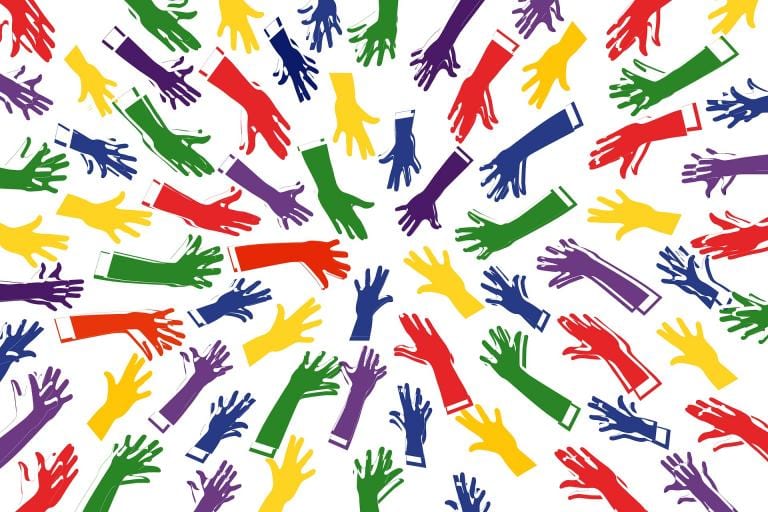
Over the last couple articles, I have focused on ways of building inclusive communities. I have touched on building your connection with nature and with others. Once you’re starting to feel connected, however, the question is “what’s next?” The connection we form with others who are considered marginalized is only the beginning. We can’t rely on strong leaders to make decisions regarding what is right or wrong. We have an individual responsibility to change how we will meet the “marginalized” communities. When we stop using words of power to disempower others, we are letting go of the restrictions placed on who we accept or love. Then, we are building inclusion with more possibilities. Transforming the “Names” we use to know others ends the labeling practice which increases exclusion and separation.
Building Inclusive Communities
In today’s world, we encounter many forms of diversity which are not always well-understood or accepted. Far too often, people who do not fit the mainstream idea of the average man or woman, are seen as something to be avoided, shamed, harassed and are usually excluded from activities and conversations. These forms of diversity could include anything: religious, cultural, racial, physical or mobility challenges, learning challenges, sexual orientation, gender expression. The list goes on. Anything which makes someone appear different or differently-abled, is often a cause for exclusion. Below I am providing some tips to increase inclusivity. Some of these apply more directly to the LGBTQIA community, but can be adapted to reduce any form of exclusion.
What can a potential ally do:
- Say hello. Stop avoiding others. Don’t look away, make eye contact. Offer a friendly greeting. You don’t have to know a person’s background to begin reducing their invisibility.
- Be kind. You could compliment them some way or ask how their day is going, but be genuine, and not intrusive.
- Ask permission to ask questions. Think about what you say before you say it. Just because you are an open book doesn’t imply others are too. And if they say “no” don’t take it personally. Respect their privacy and acknowledge that their choices matter.
- Be tactful. Is the conversation you want to have coming from a place of compassion? If you really want to be a friend or ally, do you need to ask certain questions? Show them the same respect you would want others to show you. If a question offends, let it go. Respect their right to maintain boundaries.
- Be educated. Read articles about what people go through. Watch videos and documentaries. Learn about current issues regarding protections, and discrimination. Use your vote to support others’ rights. When you take the time to be informed, you take the next important step in becoming a good friend and ally.
Ready for the next level of building inclusion?
- Drop the labels. This author fully believes in the ability to recognize differences without using disempowering language that points out and underlines the differences. When we call someone marginalized, we are promoting the divisive language that keeps them marginalized. Language creates exclusion as much as the actions which often accompany it. When we refer to people as different, we are associating them as being different from what? Us? Who is us? This is the beginning of indifference that can lead to feelings of superiority and inferiority. In the words of Depeche Mode, “people are people.”
- See people for who they are. Once you’re able to view people as equally valid in their expression of their identity, you are in a better position to see them for their potential. All people are capable of contributing to make this better world, to making our communities more supportive and caring, to making our sacred spaces more holy. Our diverse community is no different; many hands bring many gifts; many eyes see many possibilities for our future.
- Start a discussion. Open a dialogue about inclusion in your coven or grove, your workplace, your church, wherever there is an opportunity for social interaction. Present a workshop on becoming inclusive. Attend a rally for equal rights. This is about taking your support off the couch and into the streets. When people start talking about the issues others face, more people will become aware, and more opportunities will present themselves to create a truly inclusive, mutually-supportive world.


